
There are more than 4000 koalas living in Ipswich.
Ipswich City Council has completed the Koala Conservation and Habitat Management Plan.
This is a guide to help residents in both urban and rural areas help to maintain the existing koala population and create opportunities for increased koala habitat.
There are easy things every Ipswich resident can do to protect koalas.
Here are four ways you can help.
1. Make your property koala friendly
Dog attacks account for about 40% of total koala deaths.
Most dog attacks occur between dusk and dawn when koalas are most active.
The best way to stop this is to keep your dog indoors or confined behind a good fence during these times.
There is a koala and domestic dog guide online at Ipswich.qld.gov.au/koalas
Making your fence koala friendly can also prevent koalas from becoming stuck in backyards.
Your fence should be made of posts with horizontal rails at least 300mm apart.
Alternatively 300mm can be left underneath the fence to allow them to pass.
If none of these option are available for your fence, it is recommended that you can use timber posts on either side of the fence that is easy for the goalas to grip onto.
Plant trees that koalas like to eat.
For best results plant species that occur naturally in your area.
2. Report koala sightings
When you see a koala, if it’s healthy (this helps keep a record of numbers), injured, sick or dead, call Ipswich Koala Protection Society on 0419 760 127 or 0412 541 611 or visit ikps.com.au.
Koala sightings are important for understanding the health of our Ipswich koalas.
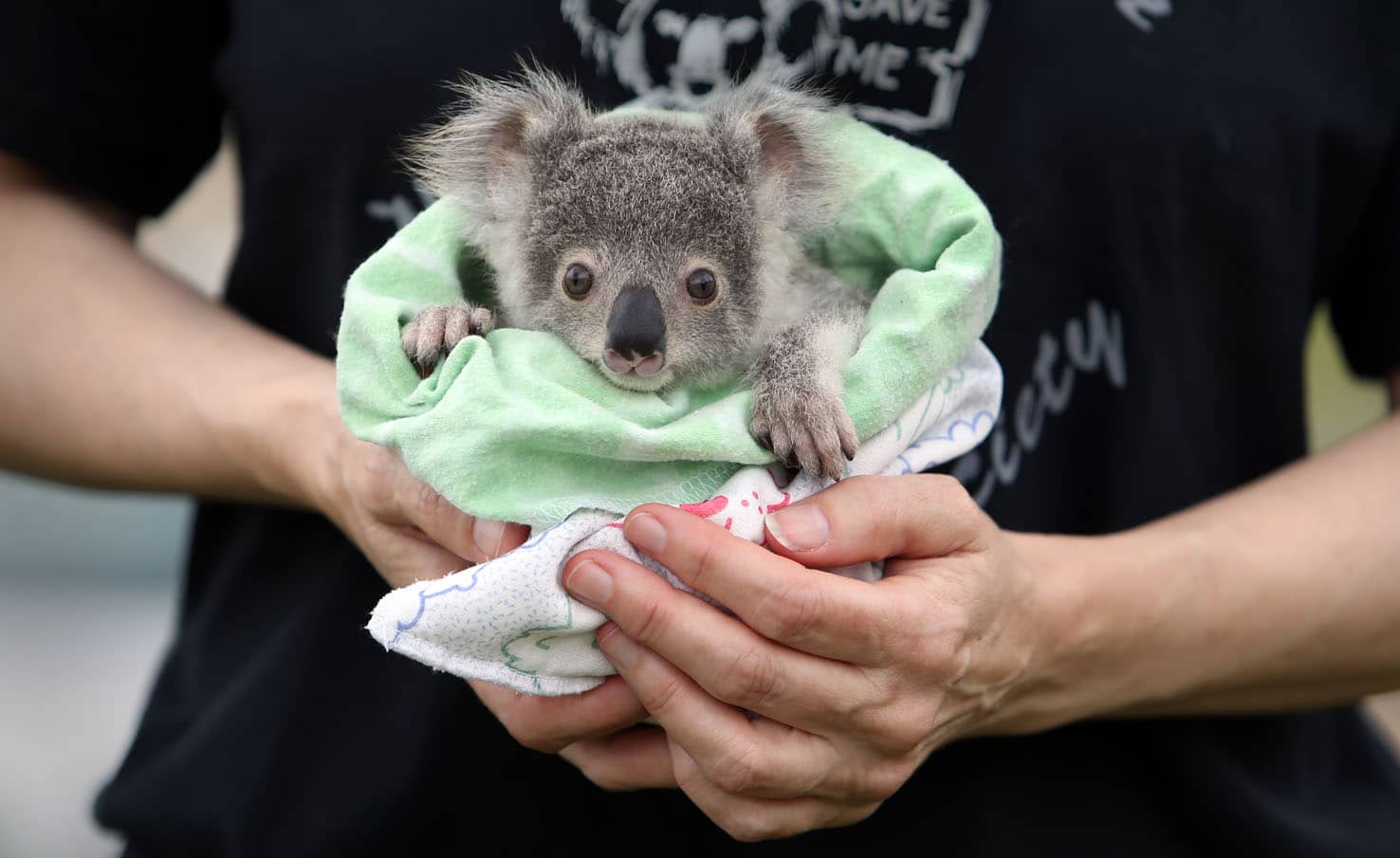
3. Drive Carefully
Take extra care at night, particularly near bushland areas. Be aware of koala crossing road signs.
These are common areas koalas cross:
- The Centenary Highway through Springfield
- Redbank Plains Road through Goodna and Bellbird Park
- Redbank Plains Road through Redbank Plains
- Alice Street, Goodna
- Formation Street, Carole Park
- Moffatt Street, Ipswich
- Kruger Parade, Redbank
- The Cunningham Highway through Ebbw Vale, Purga, Willowbank and Mutdapilly
- The Warrego Highway through Brassall and Pine Mountain
- Ipswich – Boonah Road
- Ipswich – Rosewood Road
- Rosewood – Laidley Road
- Karrabin – Rosewood Road
4. Become a Landholder Partner
The majority of koalas live on private land.
Ipswich City Council offers a variety of partnerships, and you may be eligibile for grant funding.
All agreements are voluntary and do not restrict the future sale of land. For example, you might get annual land management payments, educational material, weed control rebates and free trees.
Find more information at the Habitat Gardens Wildlife Partnership: http://www.ipswich.qld.gov.au/about_ipswich/environment/conservation/conservation_partnerships
Did you know?
Koalas are widespread across Ipswich with more than 3000 sightings recorded since 1997.
Studies indicate Ipswich is today home to more than 4000 koalas.
While studying in the Mutdapilly area, it was found in 1994 that koala movements of greater than 2km at a time were common.
Koalas in Ipswich and Beaudesert are genetically distinct from those on the Koala Coast and may act as a source population for surrounding areas. Genetic variation is crucial in a koala population as it affects the ability to resist disease, successfully reproduce and adapt to threatening processes.
Although they prefer to stay in large patches of bushland, koalas can often be found in riparian corridors, in strips of roadside vegetation and even in isolated trees in grazing paddocks.
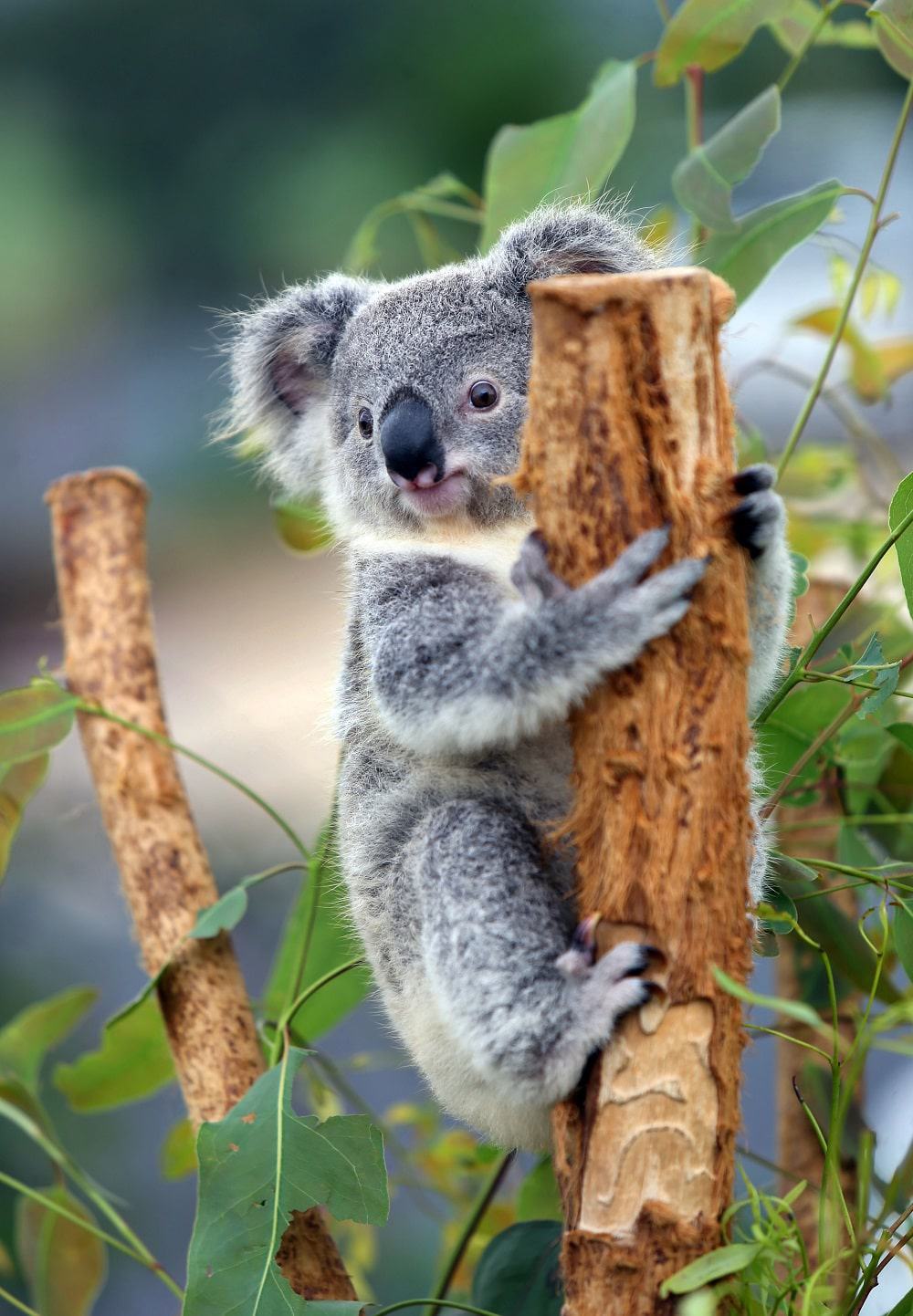
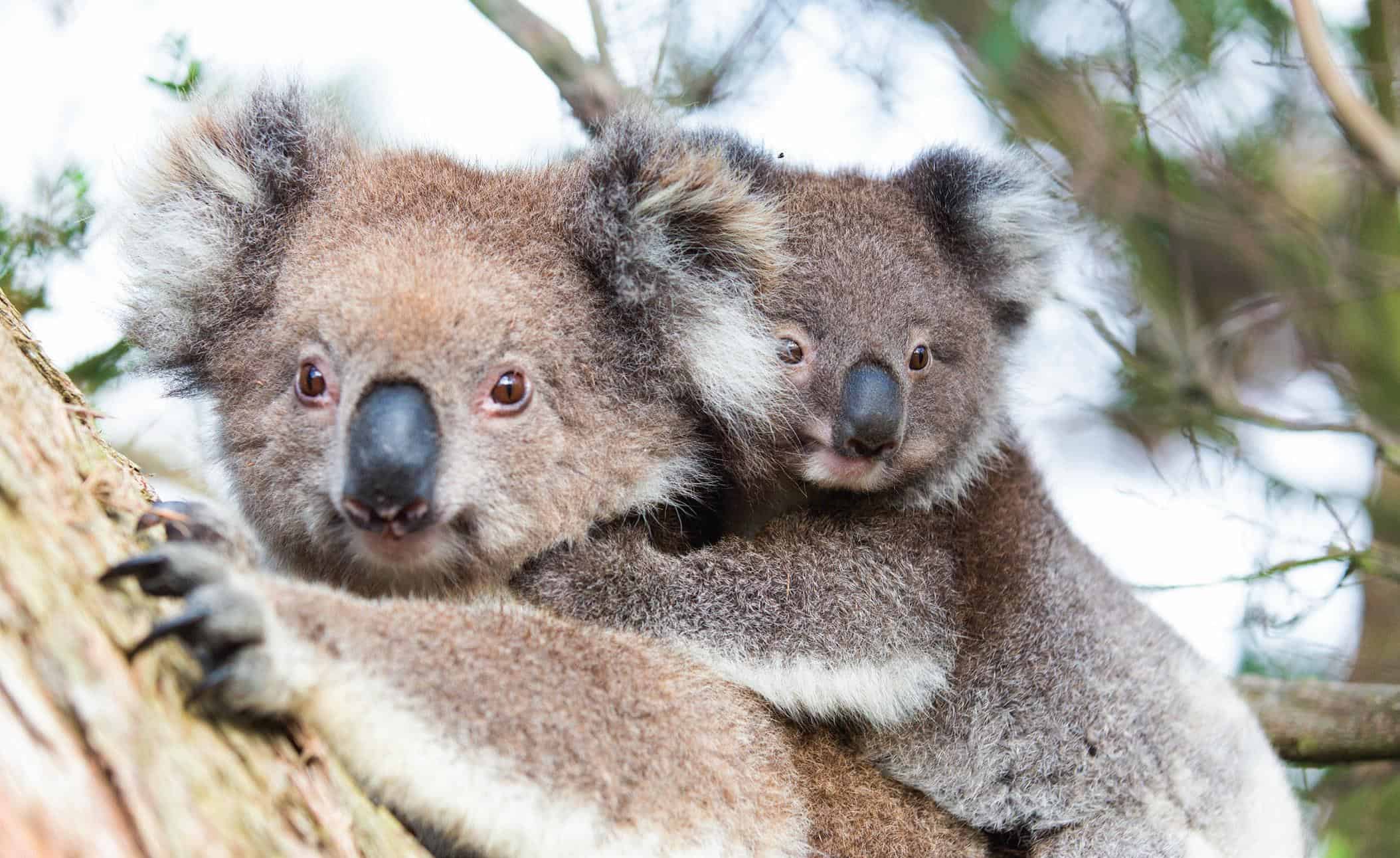
Koalas sleep for 20 hours of the day, they are awake for 4 hours and are active for only four minutes a day.
The koalas closest living relative is the wombat.
A wild koala typically lives from 13-18 years in the wild.
Gum leaves are toxic, even a bit to koalas, but contain about 55% water, so koalas rarely need to drink water seperately.
Koalas in Ipswich and Beaudesert are genetically distinct from those on the coast.
This variation is crucial in a koala population as it helps them to resist disease and successfully reproduce.
The Koala Conservation and Habitat Management Plan sets out a clear vision to protect, enhance, manage and increase koala habitat.
The plan recognises collaboration is the key to a healthy and growing koala population.
By implementing this plan, koalas and their habitats can be protected and enhanced. We aim to increase their habitats by bringing more awareness to how the people of Ipswich can help.
Visit our website www.ipswich.qld.gov.au/koalas for more information.
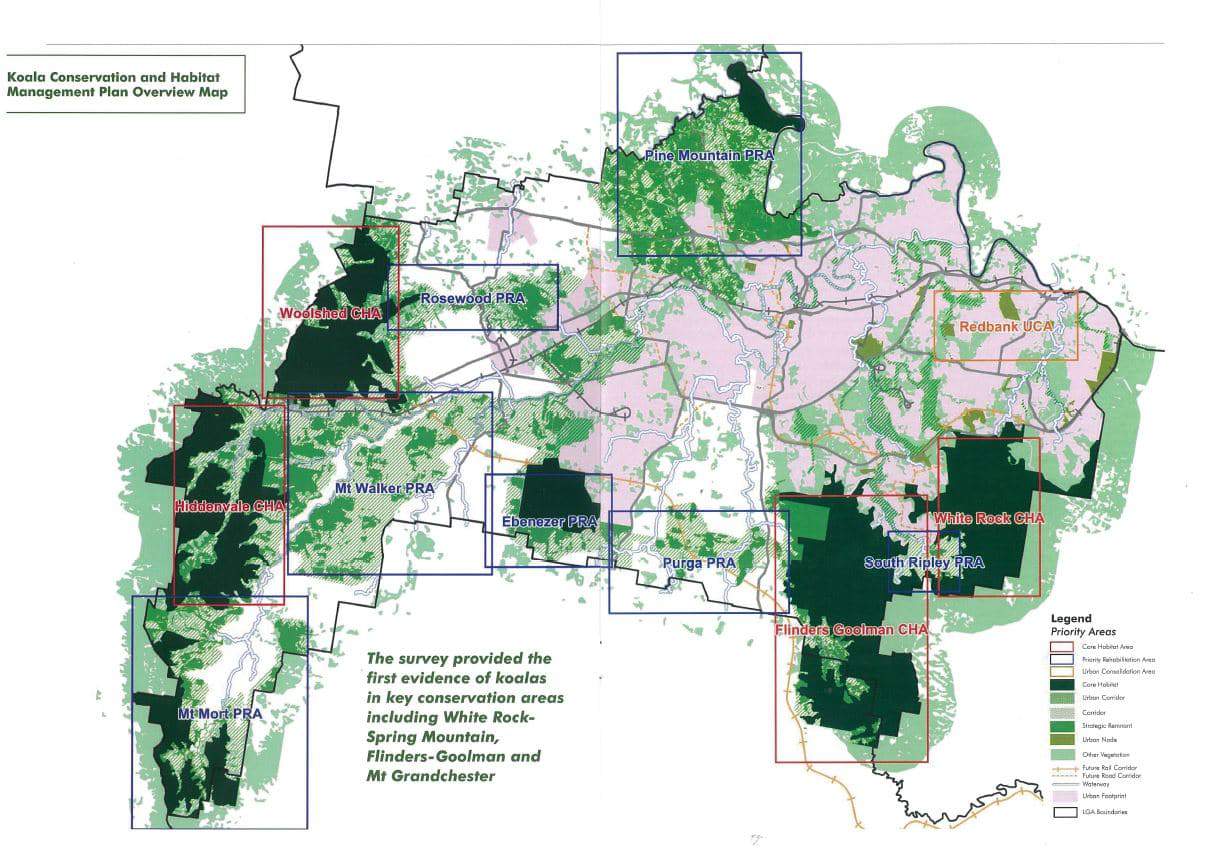

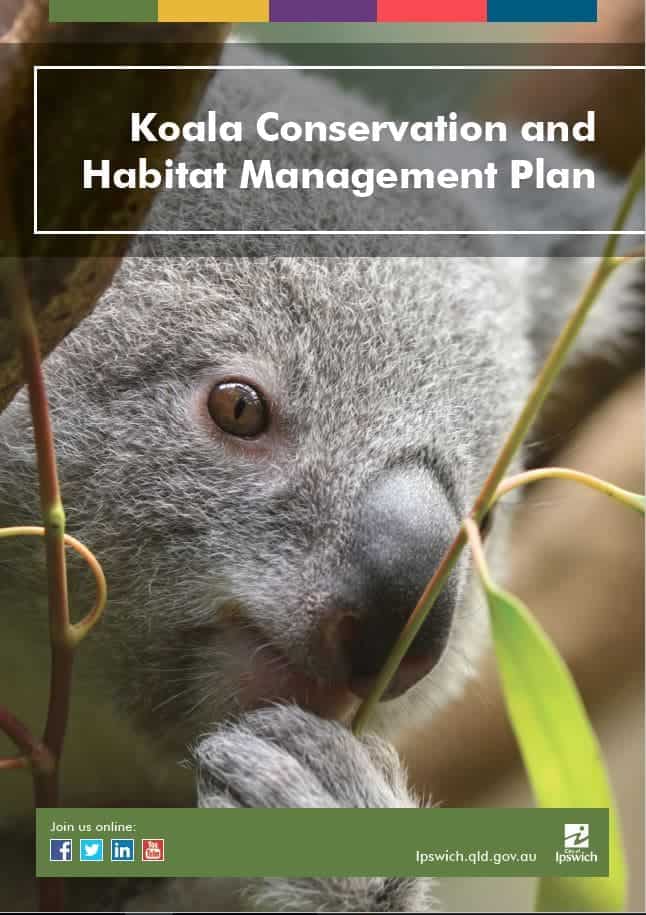
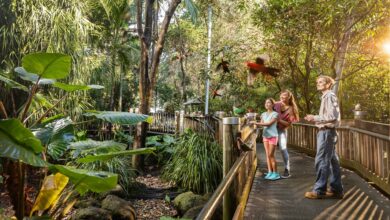
5
4.5
You forgot: stop extinguishing the species by cutting down trees for development
5